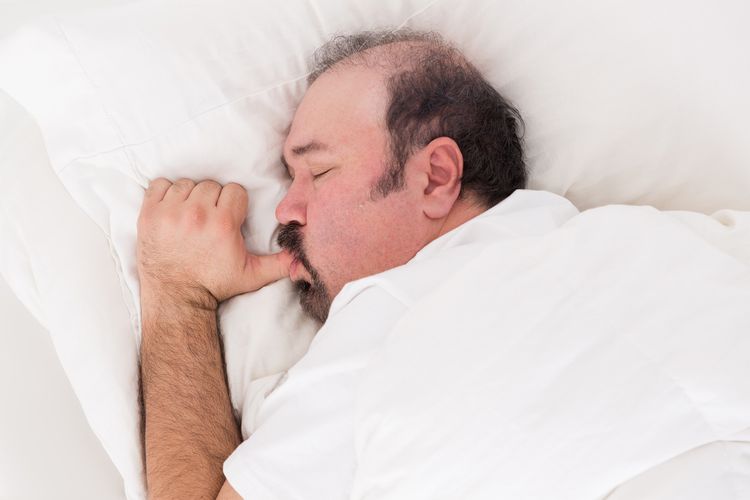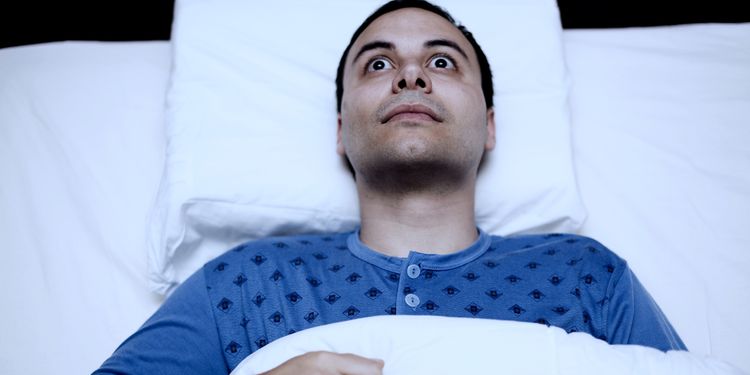8 Steps to Sleeping Like a Baby

It’s tempting to try to squeeze more time out of each day by shortchanging your sleep – a mistake far too many people make. Most people need around seven or eight hours of sleep each night to be fully functional the next day.
Insufficient sleep on a regular basis can wreak havoc on your life, resulting in irritability, depression, hormonal imbalances, weight gain, lack of focus, poor digestion, skin problems, bad decisions, and decreased productivity. But wait, there’s more: Lack of sleep also increases your risk of medical problems such as diabetes, high blood pressure, and heart disease.
The dangers of sleep deprivation are clear, but so are the benefits you’ll reap from being well rested. Good sleep makes you more relaxed, happier, and healthier. It recharges your batteries and keeps your brain and body in good working order. It enhances both memory performance and problem-solving skills. It boosts athletic performance, energy levels, immune functions, and overall mood.

Not All Sleep is Created Equally
Spending the right number of hours lying in bed doesn’t mean you’re getting enough sleep. You also need to pay attention to the quality of your sleep. What your body needs is enough good sleep. Poor sleep isn’t going to recharge your batteries.
If you find yourself consistently falling asleep during the day, it could mean your quality of sleep at night isn’t where it needs to be. A hugely under-diagnosed problem in this regard is sleep apnea, the constant interrupting of your sleep because your airway closes and your body has to startle itself awake so you don’t suffocate. More than 18 million Americans suffer from this sleep issue, and most receive no treatment for it.
It’s also worth noting that regular exercise can greatly increase your chances of better sleep. Phyllis Zee, MD, directs the Sleep Disorders Center at Northwestern Memorial Hospital. Her studies have shown how even sedentary people who had sleep problems saw them magically disappear when they engaged in regular aerobic exercise.
Something else that leads to better sleep is getting in tune with your natural circadian rhythm, which is your body’s physiological clock that regulates sleep and waking patterns. When it’s time for sleep, your body temperature starts dropping and sleep-inducing substances such as adenosine (a neurotransmitter) and melatonin (a hormone) are released. Recognizing these signals and obeying them can lead to better sleep.

8 Steps to Sleeping Like a Baby
1) Make sleep a priority. Like anything in life, improving your sleep means you’ll have to pay more attention to it. If you’re having sleep problems, you’ll want to make a conscious effort to turn things around. But don’t stress over it – that can make matters even worse!
2) The physical prelude to a good night’s sleep. The recipe for a good night’s sleep starts in the hours before going to bed. Avoid the following: caffeinated beverages, alcohol, nicotine, napping, trying to fall asleep when you’re not even feeling sleepy, and eating within three hours of bedtime. Try taking a nice warm, relaxing bath with aromatherapy (lavender is a great choice) and/or Epsom salts.
3) The emotional prelude to a good night’s sleep. Sleeping is much more difficult, if not impossible, when you’re mad, sad, worried, angry, or anxious. Writing out these worries and concerns in a journal before bed can help dismiss them so they don’t interfere with your sleep.

4) Create a good sleep environment. Think of your bedroom or sleeping area as an oasis for peaceful rest. This means making your sleeping area dark (use an eye pillow or mask if needed), removing electronics from your bedroom, eliminating as much ambient noise as possible (use earplugs if you have to), having a comfortable mattress, and keeping your bedroom temperature on the cool side (60-73 degrees F).
5) Stop the “tired and wired” routine. The electromagnetic waves and blue light from various electronic gadgets can interfere with sleep, so stay off your computer and smartphone during the two hours before bedtime. If you absolutely need to use your devices, make sure to sport these sexy blue-light blocking glasses. Those pre-sleep hours should be all about relaxing. Gentle yoga is a great way to get in the mood for sleeping, as is meditation.
6) Embrace consistent routines. Your good sleep habits should include going to bed and getting up as close to the same times each day as possible. This can help your body get used to a regular routine, making better sleep a habit that will serve you well.

7) Herbs and supplements to promote better sleep. Herbs and supplements to promote better sleep. There are several different herbs and supplements that help improve sleep. Notable herbs include: lavela/lavender (5-7 drops of lavender oil in your bath), chamomile tea or essential oil, passionflower (herb), California poppy essential oil (20-30 drops before bedtime), hops (used in extract form) and ashwagandha (1 to 6 grams in capsule form or use the roots to make tea). Notable supplements include melatonin, 5-Hydroxytryptopha (5-HTP), and magnesium.
8) Ditch the alarm clock. If you really get in synch with your circadian rhythm, you absolutely won’t need an alarm clock on a regular basis. And if you decide to keep the alarm clock, avoid using the snooze button. You might think those extra minutes are valuable, but all you’re really doing is fragmenting your sleep, which isn’t a good thing. Whenever you wake up, make an effort to just pop out of bed.
If you follow this advice, your sleep quality and quantity should hit optimal levels in no time. Getting enough sleep is making a solid investment in your health that pays great dividends both short-term and long-term. So don’t sleep on these changes (sorry, couldn’t resist!).
